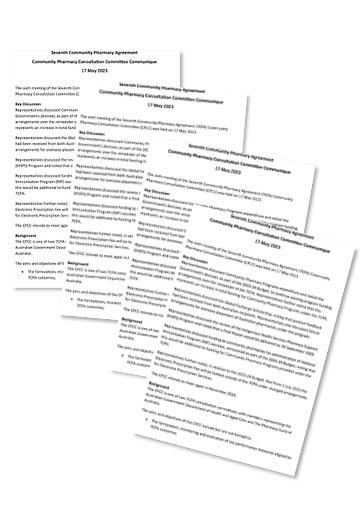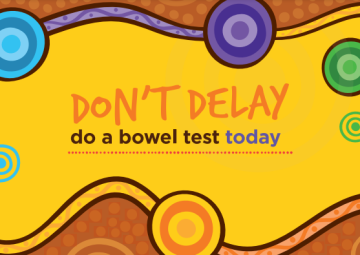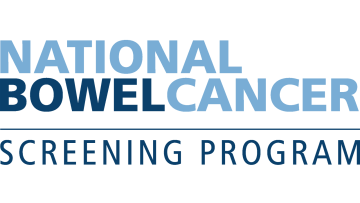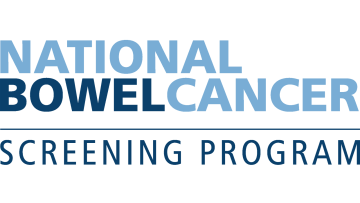Filter results
You can narrow down the results using the filters
Audience
Topics
Our work
Year
24 results
-
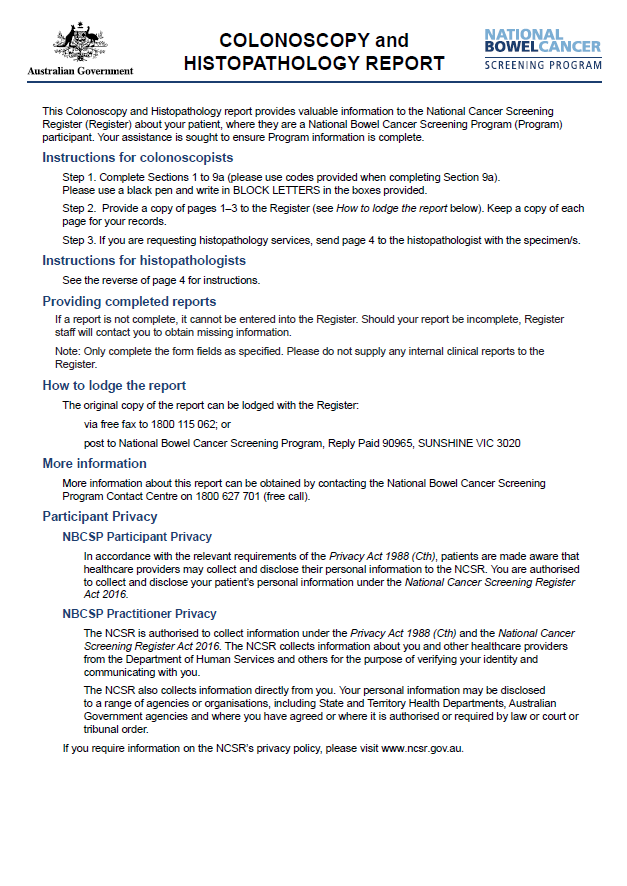
National Bowel Cancer Screening Program – Colonoscopy and histopathology report
Use this form to provide information about your patient’s colonoscopy and histopathology result. -
 03:53
03:53National Bowel Cancer Screening Program – How to do the free test
Eligible Australians aged 45 to 74 can do the free National Bowel Cancer Screening Program test. When found early, nine out of ten cases can be treated successfully. So, do the free test as soon as you get it in the mail – it could save your life. -
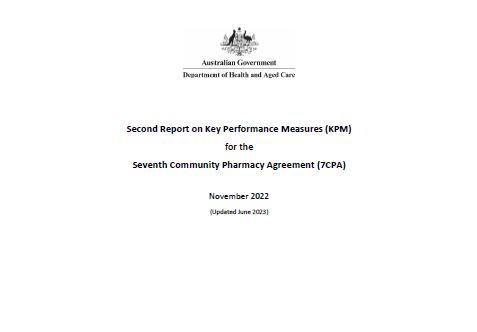
Second report on key performance measures for the Seventh Community Pharmacy Agreement
This report on key performance measures for the Seventh Community Pharmacy (7CPA) covers the periods: 1 January – 30 June 2021, 1 July – 31 December 2021 and 1 January – 30 June 2022.
-
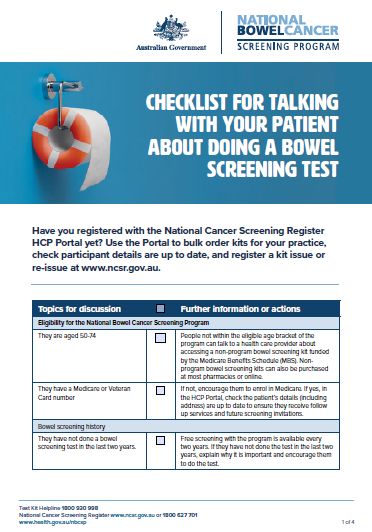
National Bowel Cancer Screening Program – Checklist for talking with your patients
This checklist includes all the key items health professionals should cover when talking to patients about bowel screening. These activities do not all need to be carried out by one health professional or all at the same time. -
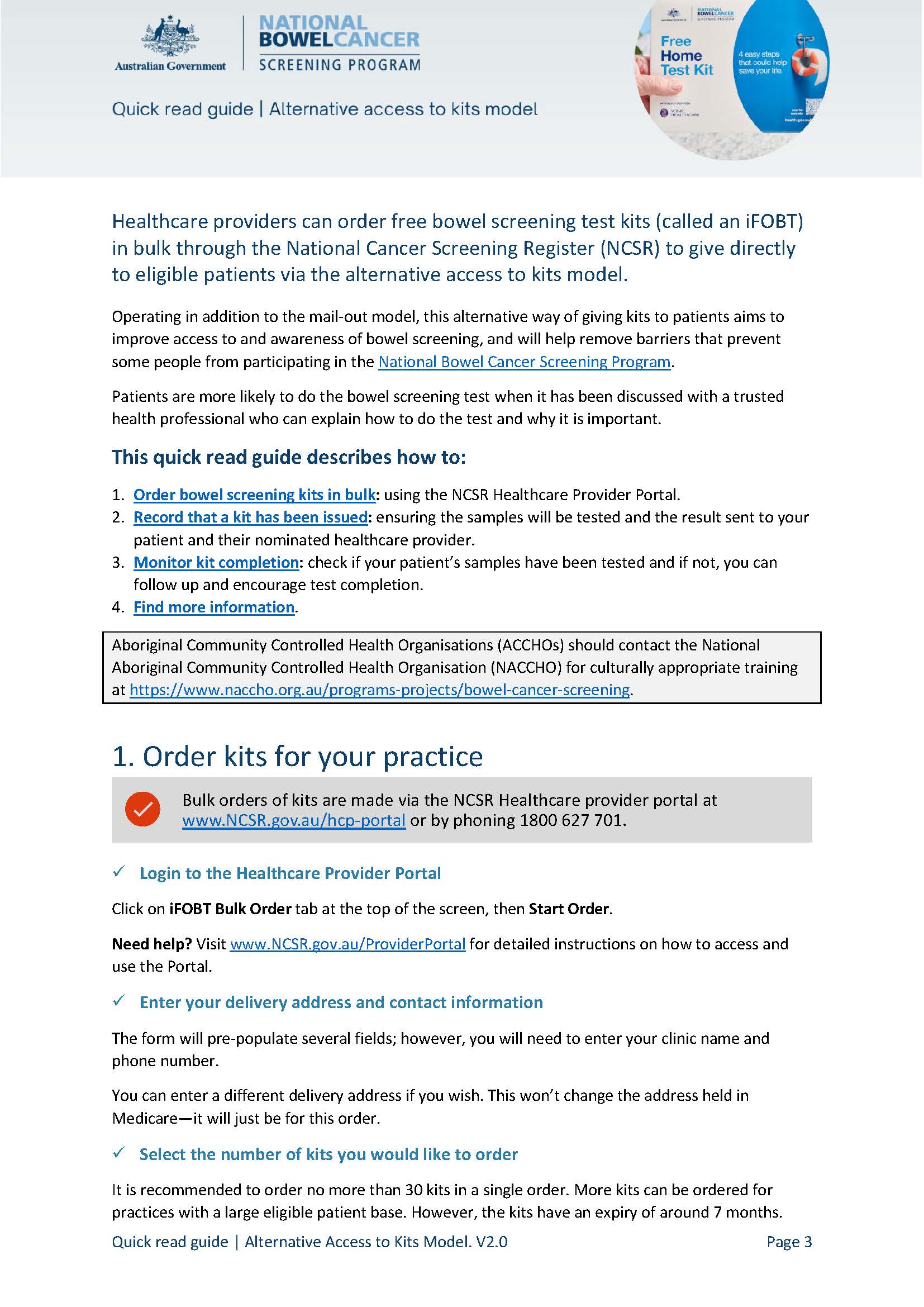
National Bowel Cancer Screening Program – Training guide for alternative access to bowel screening kits
This training guide covers key steps for practice staff and health professionals to implement and promote bowel cancer screening. Before you order or issue kits for the first time, both the person ordering kits AND the person issuing kits must read this short guide. -
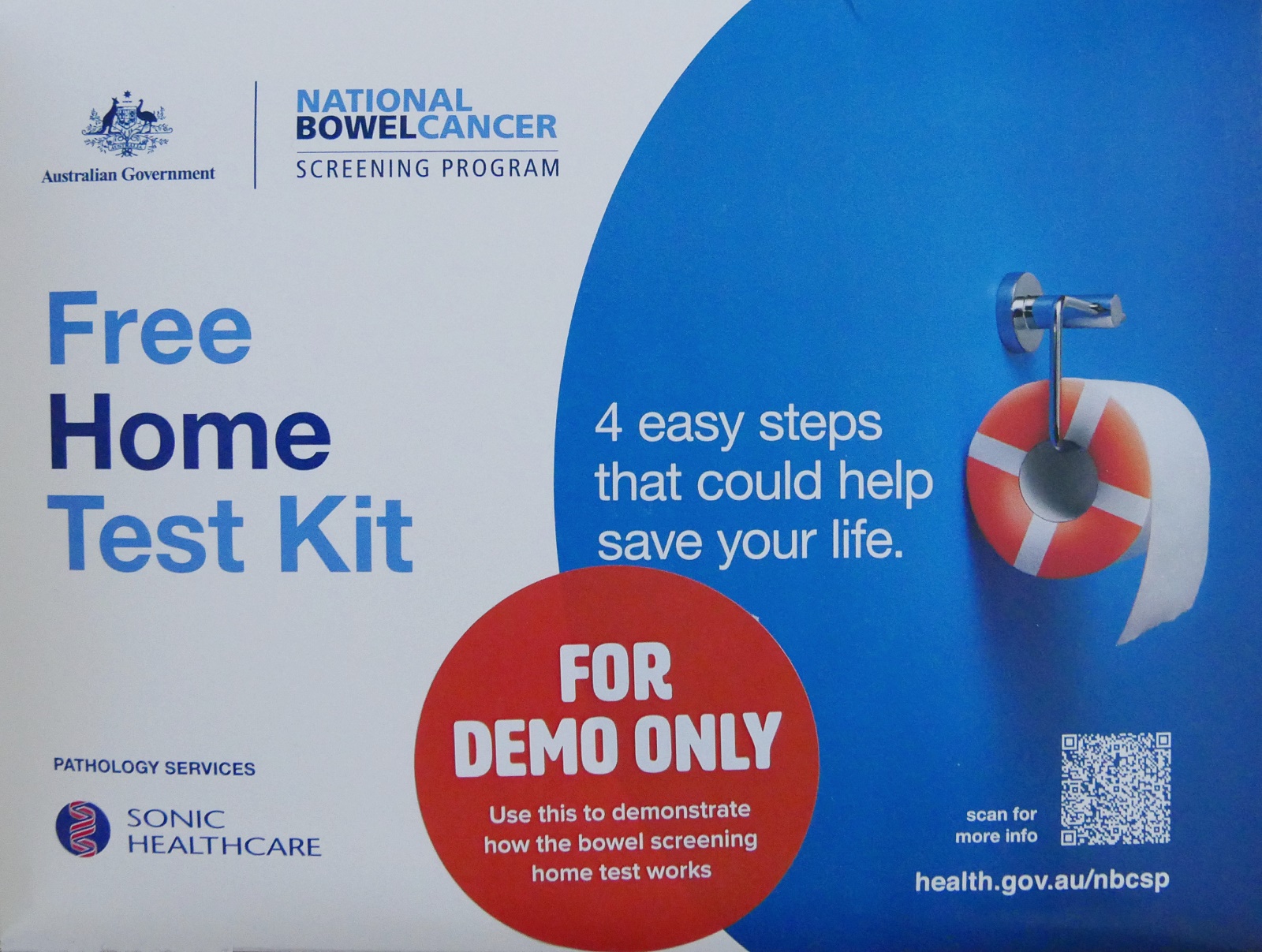
National Bowel Cancer Screening Program – Demo kit
Healthcare providers can order bowel cancer screening demo kits to demonstrate to patients how easy it is to do the test. -
Pharmacy Stakeholder Consultation Committee – Terms of reference, communiques and implementation activities
This collection contains documents relating to the activities of the Pharmacy Stakeholder Consultation Committee (PSCC).
-
Community Pharmacy Consultation Committee – Terms of reference and communiques
This collection contains documents relating to the activities of the Community Pharmacy Consultation Committee (CPCC). -
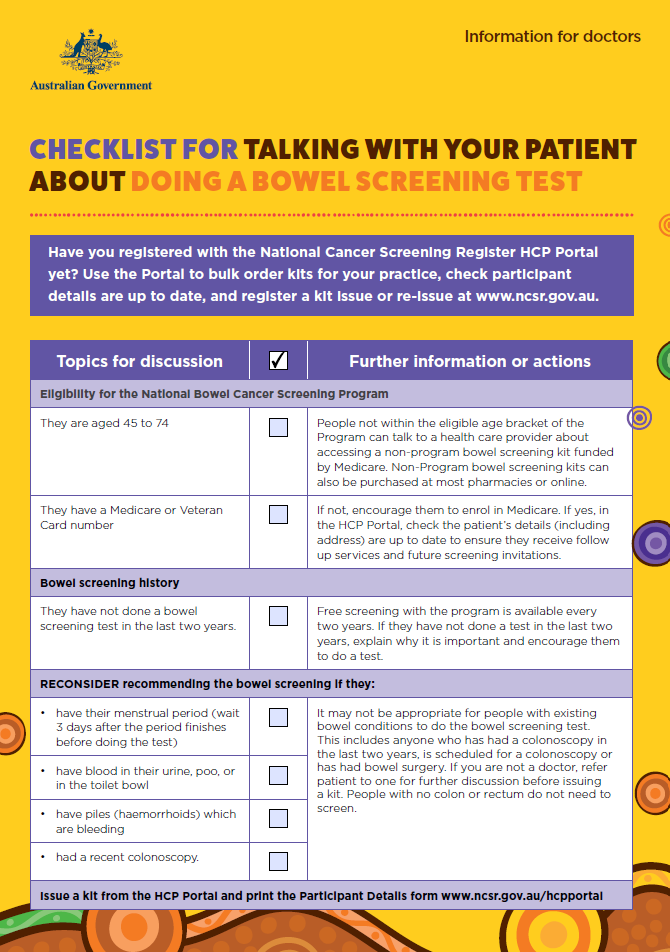
National Bowel Cancer Screening Program – Checklist for talking with your patients – with Indigenous artwork
This checklist includes all the key items health professionals should cover when talking with Aboriginal and Torres Strait Islander patients about bowel screening. These activities do not all need to be carried out by one health professional or all at the same time. -
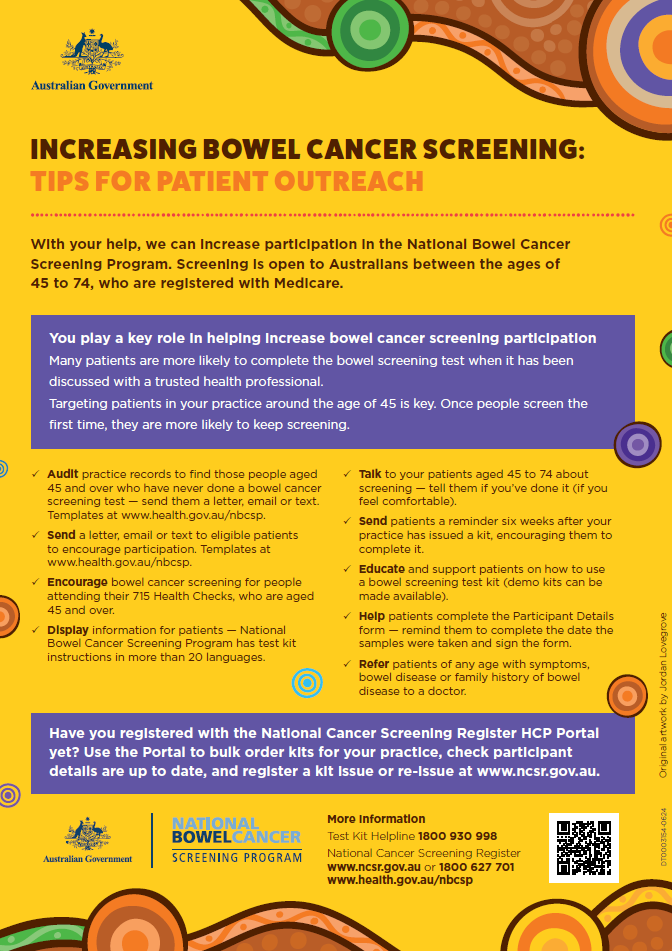
Increasing bowel cancer screening – tips for patient outreach
This fact sheet for health professionals explains how to increase participation in the National Bowel Cancer Screening Program. -
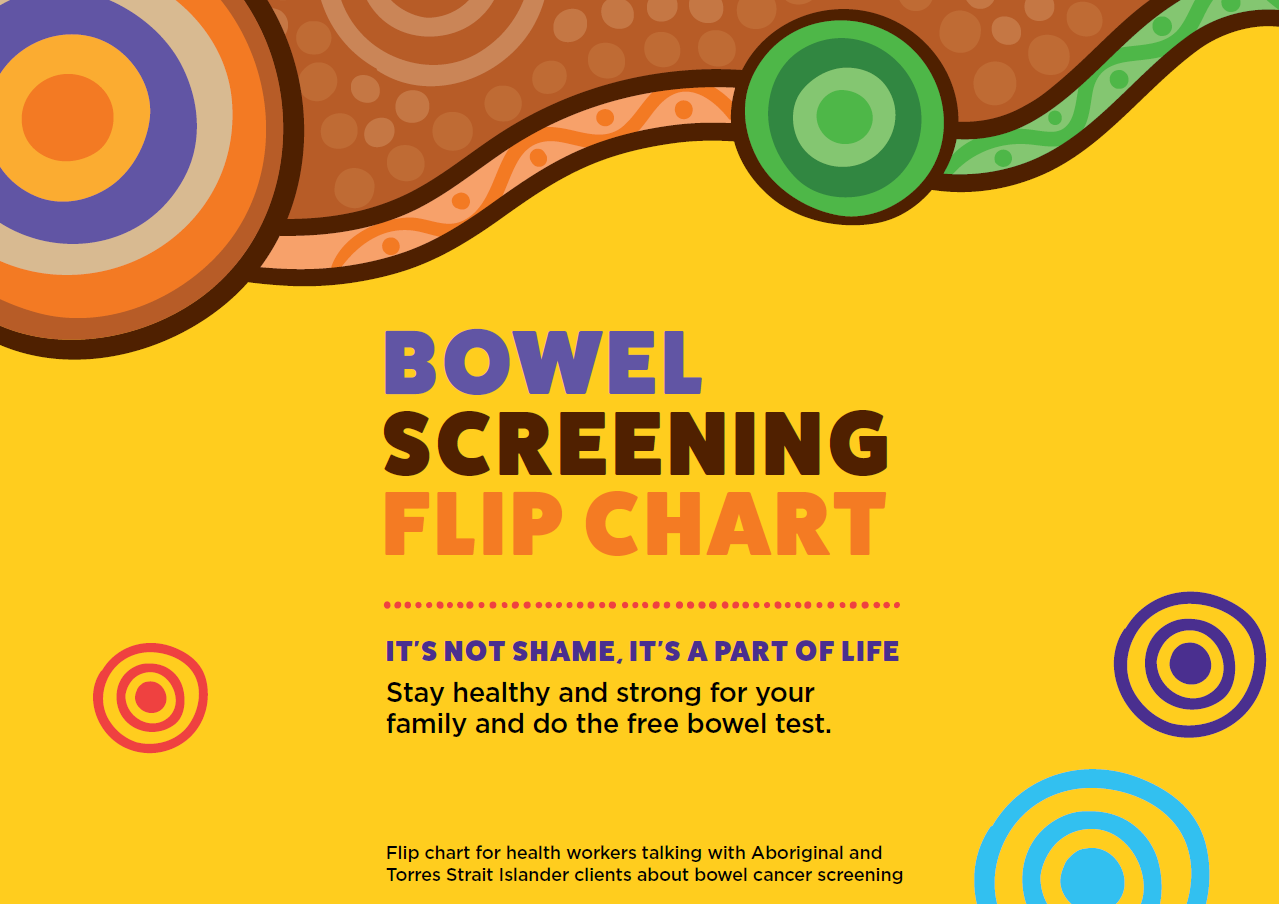
Understanding bowel screening – Flip chart guide for Indigenous people
The flip chart is designed to be used by health professionals talking with Aboriginal and Torres Strait Islander people about bowel screening. It can be used with small groups or with a single person. -
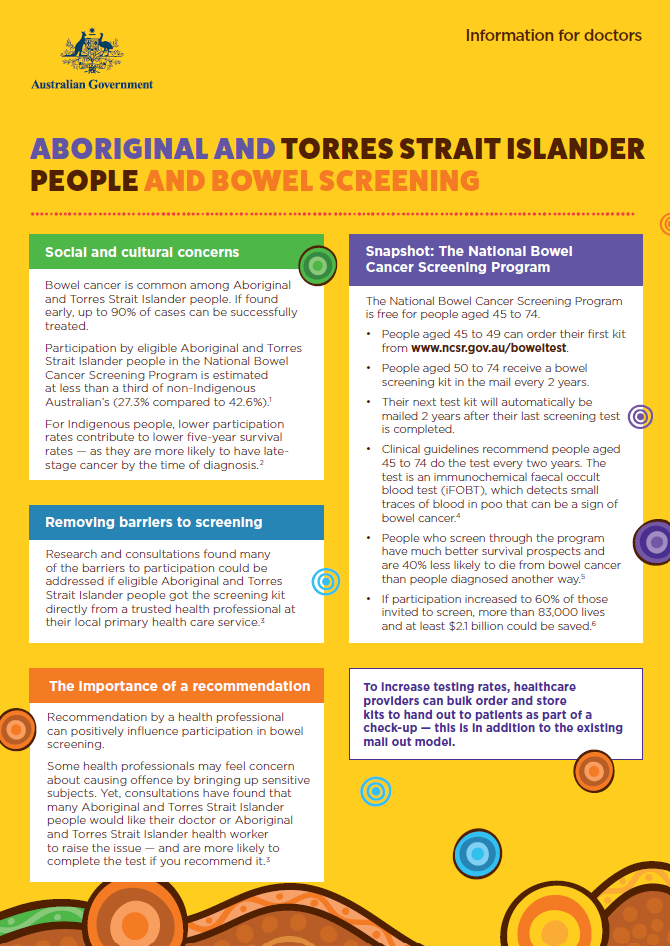
Indigenous people and bowel screening – Information for doctors
Doctors use this fact sheet to encourage Aboriginal and Torres Strait Islander people to take part in bowel cancer screening. -
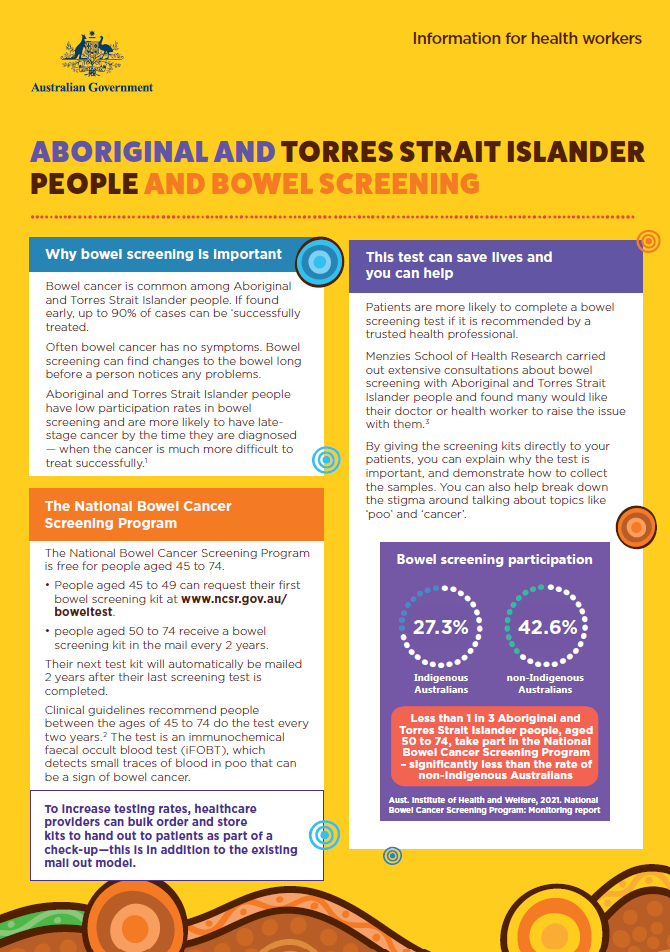
Indigenous people and bowel screening – Information for health workers
Health workers use this fact sheet to encourage Aboriginal and Torres Strait Islander people to take part in bowel cancer screening. -
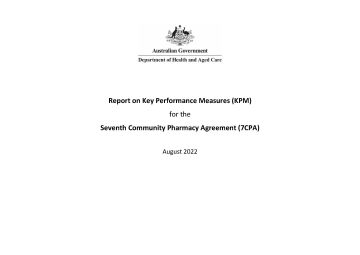
First report on key performance measures for the Seventh Community Pharmacy Agreement
This report on key performance measures for the Seventh Community Pharmacy Agreement (7CPA) covers the first three six-month reporting periods: 1 July – 31 December 2020, 1 January – 30 June 2021 and 1 July – 31 December 2021. -
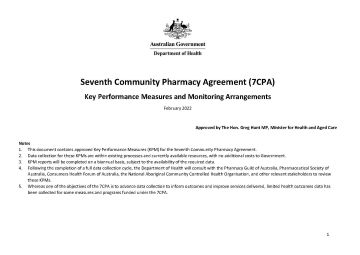
Seventh Community Pharmacy Agreement – Key performance measures and monitoring arrangements
This document contains approved key performance measures and monitoring arrangements for the Seventh Community Pharmacy Agreement (7CPA). -
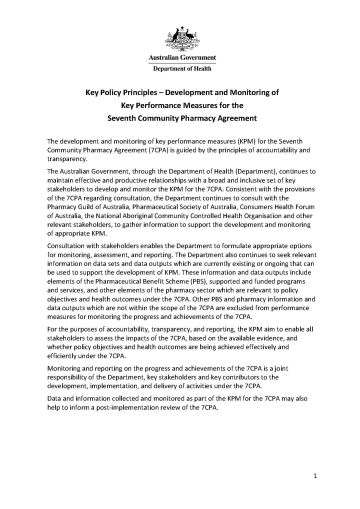
Key policy principles – Development and monitoring of key performance measures for the Seventh Community Pharmacy Agreement
This document explains how the measures for the Seventh Community Pharmacy Agreement (7CPA) are developed and monitored. -
Seventh Community Pharmacy Agreement – Key performance measures
This collection contains documents that cover the key performance measures used to evaluate the Seventh Community Pharmacy Agreement (7CPA) and reports on performance. -
Indigenous bowel screening resources for health professionals
This collection contains resources for health centres to use when offering Aboriginal and Torres Strait Islander people bowel screening kits through the National Bowel Cancer Screening Program. -
National Bowel Cancer Screening Program – Forms
These forms are for healthcare providers. By completing them, it helps ensure participant data completeness in the National Cancer Screening Register. -
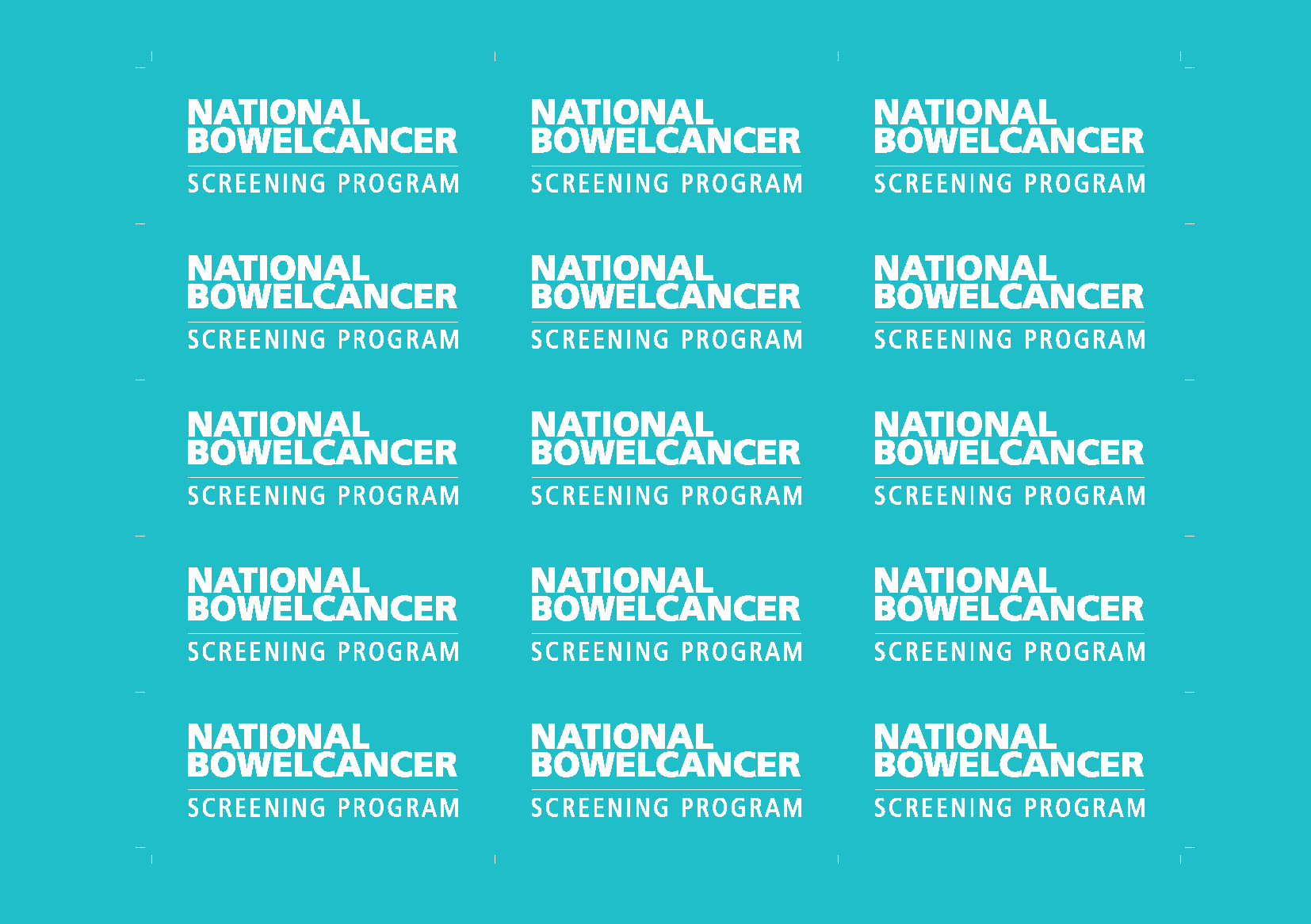
National Bowel Cancer Screening Program – stickers
These stickers are designed for use by hospitals and health providers to help identify referrals and results sheets for program participants. -
National Bowel Cancer Screening Program – Clinical resources
These clinical resources can assist health professionals to support patients taking part in the National Bowel Cancer Screening Program. -
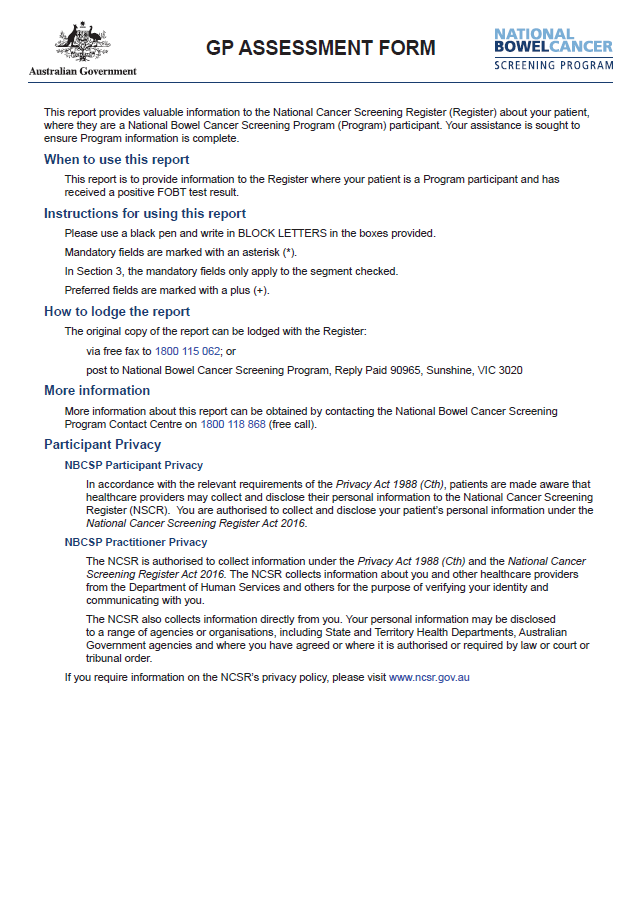
National Bowel Cancer Screening Program – GP assessment form
General practitioners (GPs) use this form to provide information about your patient who has received a positive iFOBT test result with the program, their symptoms, and whether they have been referred for colonoscopy or other examination. -
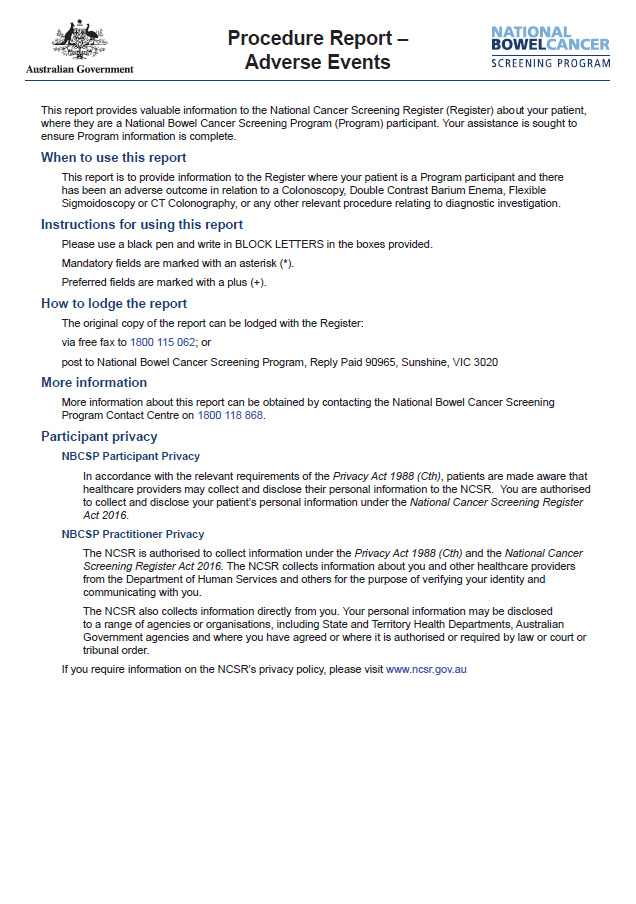
National Bowel Cancer Screening Program – Procedure report – adverse events
Colonoscopists use this form to report adverse events from diagnostic investigation procedures for program patients. Only use this form if the information has not already been included in the colonoscopy and histopathology report. -
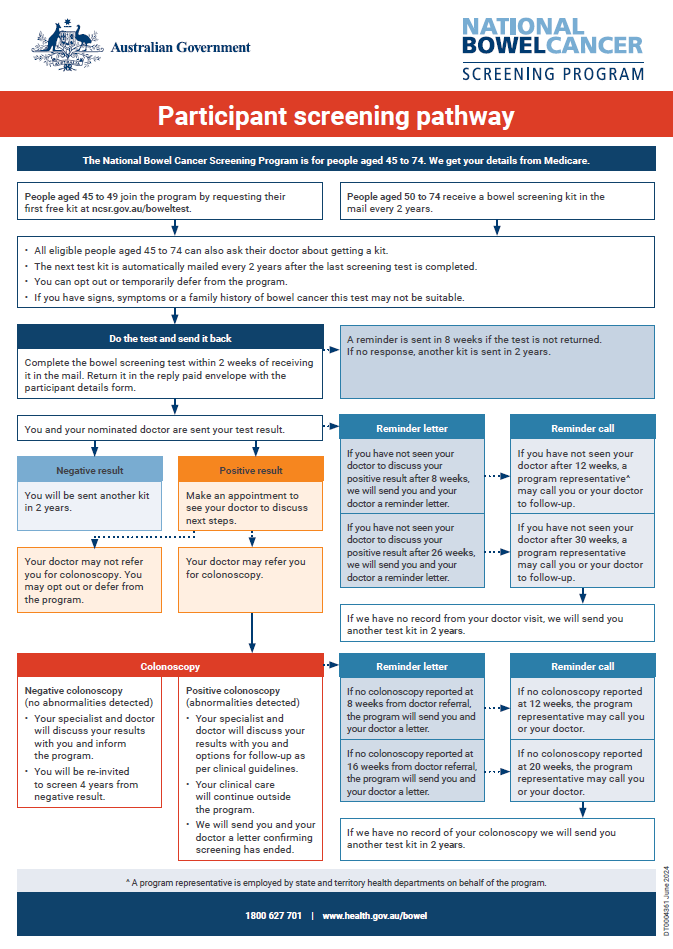
National Bowel Cancer Screening Program – Participant screening pathway
This flowchart shows the pathways that people take through the National Bowel Cancer Screening Program. It identifies what stages people are contacted throughout the process and who contacts them.


